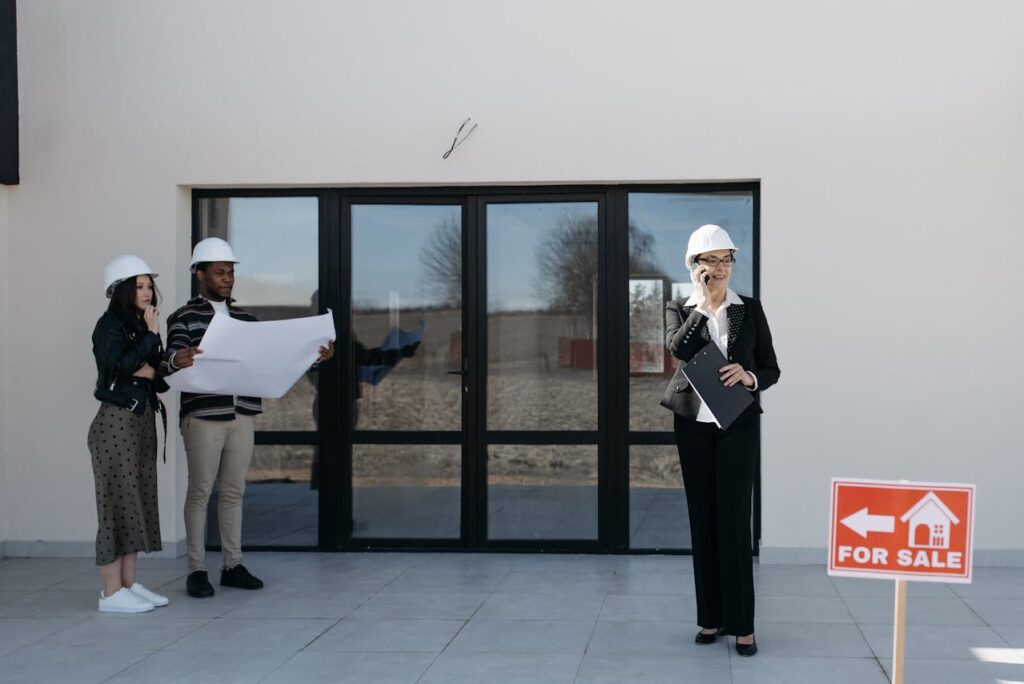There are few things more exciting than getting the keys to a new property, but buying a home isn’t always easy. If you’re ready to take the plunge, this guide is packed with essential tips to streamline the process and keep stress and worry at bay.

Establish your budget
The first step to take before you get carried away browsing listings and putting together a mental shopping list of items for your new home is to set a budget. Focusing on your finances from the outset can help you minimize stress and find suitable properties. The cost of houses and apartments varies hugely depending on size, style and location. Having a budget in mind at the start of the search will help you narrow options. It’ll also prevent you from falling head over heels for a home that’s not affordable.
When budgeting for real estate purchases, it’s beneficial to explore mortgage offers and figure out how much you want to spend. The more you can put down as a deposit or downpayment, the less you’ll need to borrow. If you have a healthy deposit, you can also access preferable mortgage interest rates. Getting a mortgage involves paying monthly repayments. Before you apply, make sure you have a clear idea of what is affordable for you. If you push too hard, there’s a risk of financial pressure. You don’t want to secure your dream home only to find that the payments are too expensive, which means you feel stressed or you’re unable to make the most of it.
Seek expert advice
Buying a home isn’t usually as easy as seeing a listing, arranging a viewing, submitting an offer and signing a contract. There are often complexities and challenges to negotiate. Seeking expert advice can help prevent delays and disruptions and make the process of finding a home and putting an offer in easier. Real estate agents and legal experts can also help you navigate the steps involved in becoming the legal owner of the property. This article explains why seeking advice is beneficial https://www.estateagencyedinburgh.co.uk/buying-a-property. It’s helpful to have experts on hand at every stage of your search, especially if you’re a first-time buyer. You can get the answers to questions and speed up and simplify the process. It’s beneficial to research local real estate agents and agencies, ask people you trust for recommendations and read client reviews.

Create a wish list
Creating a wish list is an excellent way to determine what you want and outline your priorities. It’s not always possible to find a property that checks every box. You may need to compromise or go without some of the features or amenities in the non-essential section of your list. Note down non-negotiables, preferences and extras you’d like but aren’t deal-breakers. If space is your main priority, for example, you may not be willing to consider anything but a 3 or 4-bedroom house with a large outdoor area, but you might compromise on the décor or location. If you’re desperate to live in a specific neighborhood, you might be willing to opt for a smaller house if the location is perfect.
When you draw up your list, it’s advisable to be realistic about what you can afford and what’s available on the market. If your budget is average for a 2-bedroom property in your chosen area, for example, it’s not realistic to put a 4-bedroom house on your wishlist. If prices are higher than your budget, ways to save include taking on a fixer-upper or expanding your search area. Researching locations and market trends can give you valuable insights into house prices and the current state of the housing market.
Make the most of viewings
More and more people are finding homes online. Browsing online is brilliant, but it can be misleading at times. Virtual brochures, guides and galleries are designed to lure buyers in and encourage them to schedule viewings. They are part of a marketing machine. When you shortlist properties, try to be open-minded and don’t discount homes based solely on pictures and photos. Arrange viewings and have a look for yourself. Make the most of opportunities to inspect different types and styles of properties and get a feel for each house or apartment.
As a prospective buyer, you should take your time to make decisions. You should never feel pressured to act spontaneously. It’s helpful to visit a home at least two or three times. There’s a lot to take in and think about. You may find that a property that blew you away on the first visit isn’t as appealing the second time. For more advice about getting through the buying process, check out this article https://www.forbes.com/sites/ryanserhant/2025/04/07/5-essential-homebuying-tips-for-2025-strategies-helping-buyers-win/.

If you’re ready to buy a home, you’re probably experiencing a mixture of emotions. From excitement to anxiety, purchasing real estate can be a roller coaster ride. To help you sail through, it’s wise to set a budget at the start, seek expert advice and make the most of viewings. Research locations and market trends and create a clear, realistic wish list.



Leave a Reply